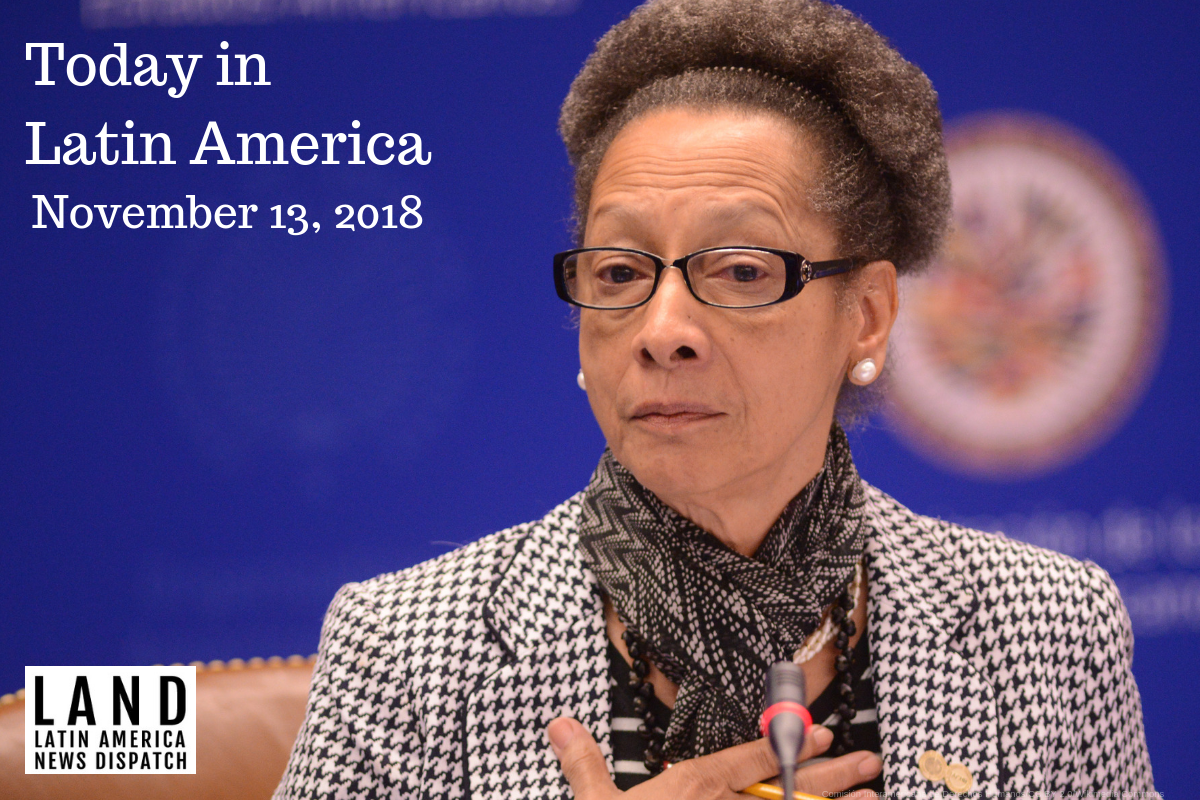HEADLINES FROM THE WESTERN HEMISPHERE
NORTH AMERICA
MEXICO: A team of investigative journalists counted 2,000 clandestine graves uncovered in Mexico between 2006 and 2016, twice the government’s highest count. They requested information from individual states to reach this number, which is likely still an understatement, since some states did not report any graves, despite contrary accounts from the press and human rights organizations. These murders and mass burials represent violence and impunity associated with drug cartels.
MEXICO: Former president Felipe Calderón quit the right-wing National Action Party. The PAN, the party’s acronym in Spanish, backed Calderón as he successfully campaigned for the presidency in the 2006 elections. The politician suggested that he may form a new political party along with followers next year. Calderón had been a member of the PAN since the eighties, but says in the last decade the party has moved away from its original values.
MEXICO: Police arrested five people for their involvement in the killing of a medical student named Valeria Cruz Medel. Medel was shot on Thursday while working out at a gym in Ciudad Mendoza, in the Mexican state of Veracruz. Her mother, Congresswoman Carmen Mendel, found out about her death during a session in Congress. Veracruz’s governor said that Mendel was not the official target, and that the shooter seemed to have been killed by fellow gang members in reaction to the mistake.
MEXICO: A violent encounter between local police and neighbors resulted in the blockade of a highway between Mexico City and Pachuca, one of the main access points to the capital. San Juan Ixhuatepec residents set a cop car on fire and looted a convenience store, protesting abuses by police Sunday night. Officers were searching someone they suspected of stealing from a gas station when bystanders intervened. Locals demand the liberation of six people who were detained in the fight.
THE CARIBBEAN
JAMAICA: Scientists have determined that the strange, extinct Xenothrix monkey, which reached Jamaica nearly 11 million years ago, originated in South America. Professor Samuel Turvey of the Zoological Society of London told the BBC what the monkey may have looked like: “Possibly with legs like a rodent; body may be like a slow loris. Because it’s so weird no one’s been able to agree what it was related to.” Scientists tested DNA from Xenothrix fossils to discover the monkey’s South American origins and believe that Xenothrix traveled to Jamaica on rafts of vegetation.
CUBA: Invor Bedessee, who survived the Fly Jamaica flight that crash-landed in Guyana this past weekend, spoke to the Canadian Broadcasting Company about his near-death experience. Bedessee was one of 120 passengers and eight crew members aboard the flight, which overshot the Cheddi Jagan airport in Georgetown Friday night. Six passengers were injured and the Guyana Civil Aviation Authority has begun an investigation.
CENTRAL AMERICA
EL SALVADOR: Twenty-year-old rape victim Imelda Cortez could spend twenty years in prison for attempted abortion, depending on the outcome of a trial that began yesterday. Cortez was rushed to the hospital in April 2017 while bleeding heavily. She gave birth to a healthy baby girl, fathered by Cortez’s abusive 70-year-old stepfather. The emergency room doctor believed that Cortez had attempted an abortion, which is illegal under all circumstances in El Salvador, and called the police. Cortez has been in prison since she gave birth last year. Judges are expected to make a decision within the week.
THE ANDES
COLOMBIA: University students say they will continue to push for increased education spending despite receiving death threats and facing violence last week. The protests, which have been ongoing for a month, have become a central issue for the government of President Iván Duque, who said Friday he would not increase education spending in the budget. Dozens of protesters and eight police officers were injured Thursday in a march in Bogotá.
BOLIVIA: President Evo Morales said he guarantees freedom of expression in Bolivia, after a construction worker was arrested last week for assaulting Morales in Potosí. The construction worker said his only offense was yelling, “Bolivia said no,” referring to the 2016 referendum in which Bolivians rejected Morales’s bid for reelection. While defending freedom of expression, Morales also called out “provocateurs” who seek to attack during opportune “political” and “social” scenarios.
SOUTHERN CONE
PARAGUAY: Floods in Asunción have forced 6,000 families living in poor, low-lying areas to evacuate after a bout of heavy rains last week. The Paraguay River has swelled to 20 feet and is expected to continue rising. Displacement due to flooding of the river typically happens every year. In response, the government plans to build nearly 10,000 social housing units in the next 10 years to accommodate future evacuees.
GOT NEWS? Send the editors tips, articles and other items for inclusion in Today in Latin America to tips@latindispatch.com.



